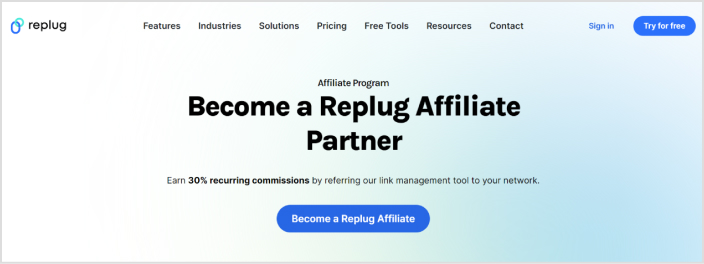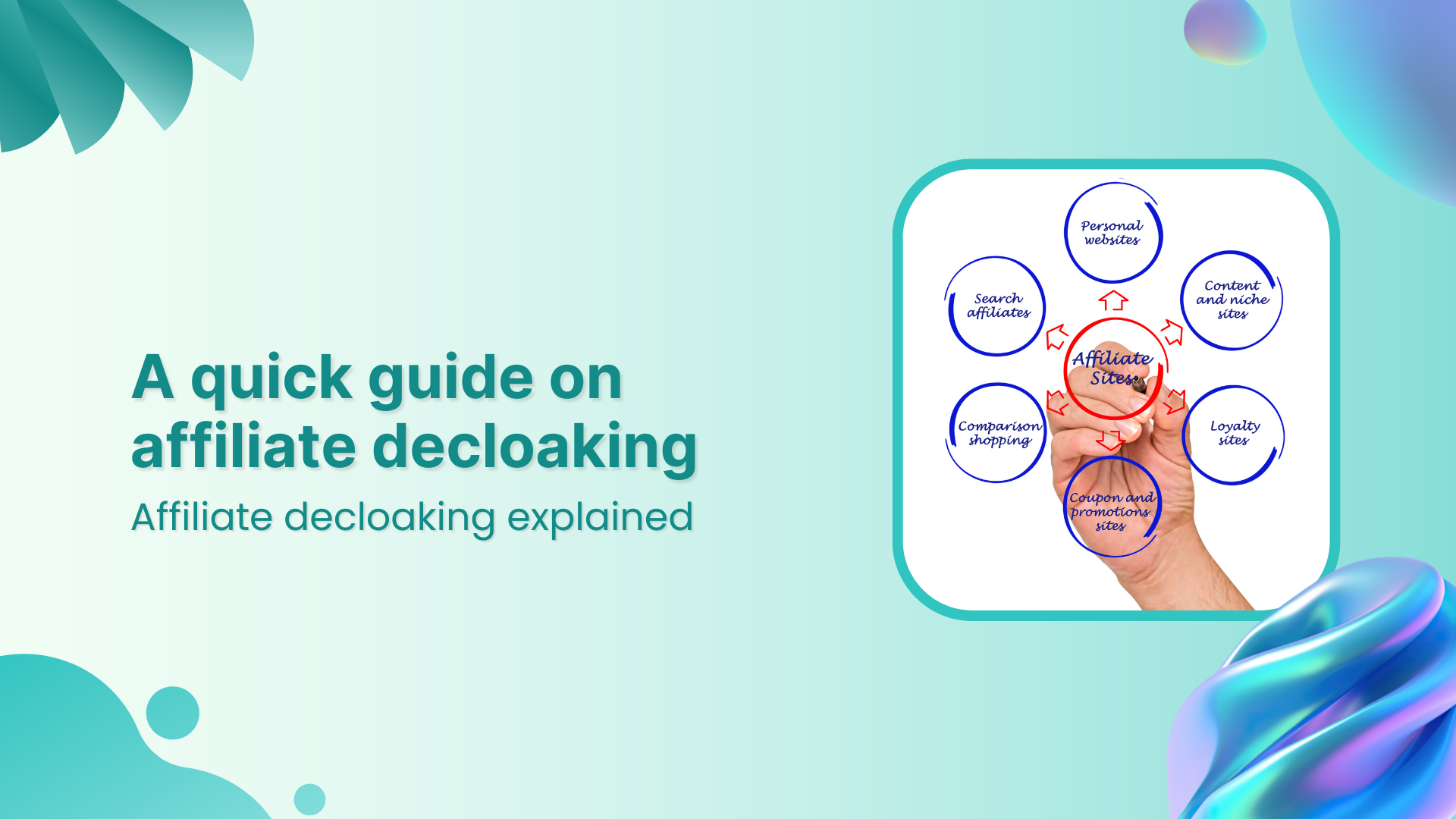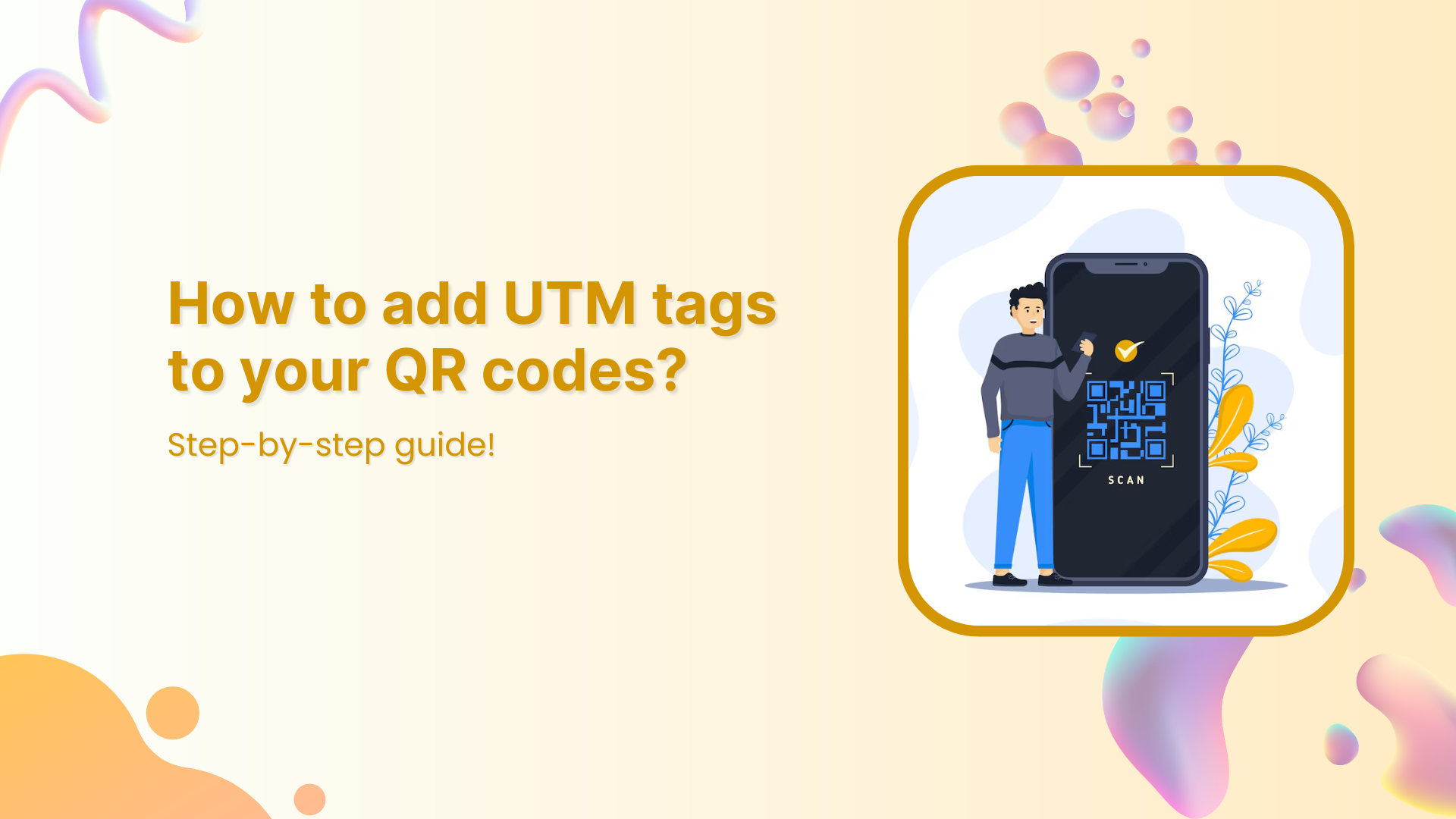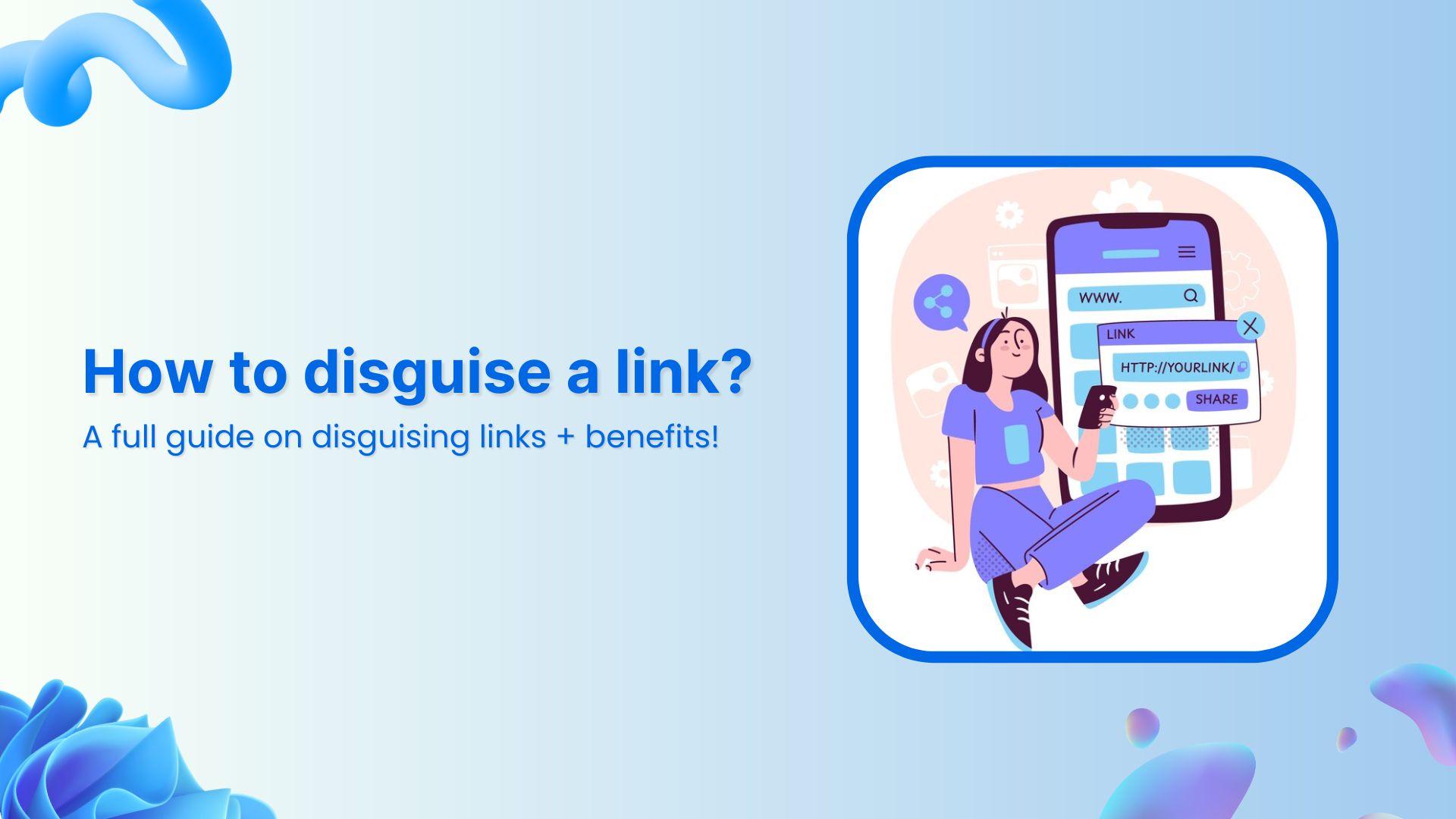Affiliate decloaking isn’t just a fancy term; it’s the key to building trust with your audience. Picture this: you’re browsing the web and stumble upon an intriguing link. But wait, where does it lead? That’s where decloaking comes in.
By lifting the veil on those affiliate links, you’re showing your audience you have nothing to hide. It’s about being upfront, honest, and, ultimately, more persuasive.
This guide will explore why affiliate decloaking matters and how it can supercharge your marketing efforts. So, let’s dive in!
All you should know about affiliate cloaking and decloaking
To understand the concept of decloaking in affiliate marketing, it’s crucial to first know its counterpart: affiliate cloaking. Both techniques revolve around manipulating URLs, but they have distinct purposes and outcomes.
What is affiliate cloaking?
Affiliate cloaking is when a marketer disguises or hides the actual destination URL of an affiliate link. Because affiliate links are created by sales commission tools, their destinations might seem weird. So, affiliate cloaking is like putting a mask on the link to make it look different from where it leads. People often do this to make links appear cleaner or to track clicks without revealing the true destination.
What is affiliate decloaking?
On the flip side, affiliate decloaking is the process of removing the disguise from a cloaked affiliate link to reveal its true destination URL. It’s all about transparency and honesty. Decloaking shows your audience exactly where they’ll end up if they click the link.
What’s the difference between the two?
Here’s a quick table to show you some major differences between cloaking and decloaking.
| Aspect | Cloaking | Decloaking |
| Purpose | Hides the destination URL | Reveals the destination URL |
| Use | Aesthetic purposes, tracking, redirects | Transparency, building trust |
| Outcome | Link looks cleaner but conceals its target | Audience knows exactly where they’ll go |
| Impact on trust | May reduce trust if discovered | Increases trust and credibility |
Understanding cloaking and decloaking in affiliate marketing
As we have stated before, Cloaking refers to hiding the true destination of an affiliate link from users. Marketers use this technique to conceal where a link leads by altering the URL or redirecting.
SEO/PPC affiliates might cloak links to hide non-compliant content from brands and avoid penalties. While cloaking may boost short-term results, it risks severe consequences like affiliate bans or legal issues if discovered.
Legal implications: Cloaking can have legal consequences, mainly if it violates regulations like the FTC’s affiliate disclosure rules. If cloaking is used to deceive consumers or hide affiliate relationships, marketers could face fines or other penalties.
Decloaking reverses cloaking to enhance link transparency and improve affiliate performance. Tools like BluePear’s decloaking service simulate real traffic from multiple IPs and countries, fully exposing landing pages, which builds trust and transparency in affiliate marketing.
Also read: Best Affiliate Marketing Tools of 2024
Link Management Made Easy
Your go to link management tool for CTAs, branded and bio links, QR Codes, tracking and retargeting.
Get Started for FREE!
How does affiliate decloaking work?
Here’s how it typically works:
Identifying cloaked links:
First, you need to identify the cloaked affiliate links you want to decloak. These links often appear shortened or obfuscated, making it difficult to determine their true destination.
Extracting the destination URL:
Once you’ve identified a cloaked link, you’ll need to extract the destination URL hidden within it. This might involve using online tools or browser extensions designed to reveal the underlying URL of shortened or cloaked links.
Displaying the destination URL:
Once you’ve extracted the destination URL, you can then display it to your audience. This could be done by simply replacing the cloaked link with the revealed destination URL in your content or by providing additional information alongside the link to ensure transparency.
Ensuring transparency:
The key to effective affiliate decloaking is transparency. By revealing the true destination URL to your audience, you’re providing them with the information they need to make informed decisions about whether to click on the link.
Maintaining compliance:
It’s important to ensure that your decloaking practices comply with any relevant laws or regulations, as well as the terms of service of the affiliate programs you’re participating in. This may include obtaining consent from users before redirecting them to affiliate links and providing clear disclosures about your affiliate relationships.
Also read: How to Post Amazon Affiliate Links on Facebook?
Link Management Made Easy
Your go to link management tool for CTAs, branded and bio links, QR Codes, tracking and retargeting.
Get Started for FREE!
Why should affiliates decloak links?
Affiliates should decloak links for several important reasons:
- Transparency and trust: Decloaking links promotes transparency by revealing the true destination URL to users. This honesty builds trust with the audience, as they know exactly where they’ll be directed when clicking on the link.
- Credibility: Decloaking links enhance the credibility of the affiliate marketer. It demonstrates integrity and accountability, showing that the marketer is not trying to deceive or manipulate their audience.
- Compliance: Decloaking ensures compliance with regulations and affiliate program terms. Some programs require affiliates to disclose their affiliate status and provide clear information about linked destinations.
- User experience: Decloaking improves the user experience by providing clarity and reducing confusion. Users appreciate knowing where a link leads before clicking, which can lead to higher engagement and conversions.
- Long-term success: Building trust and credibility through decloaking contributes to long-term success in affiliate marketing. It fosters positive relationships with the audience and encourages repeat visits and referrals.
Also read: Affiliate Link Tracking To Optimize Your Earnings
Link Management Made Easy
Your go to link management tool for CTAs, branded and bio links, QR Codes, tracking and retargeting.
Get Started for FREE!
A practical examples of cloaking and decloaking in affiliate marketing
A fitness blogger named Sarah promotes a protein powder through her affiliate link. To make the link cleaner and more visually appealing, she cloaks it using a URL shortener, so instead of showing

it appears as

This is cloaking—it hides the original affiliate URL, making it look more professional while also allowing Sarah to track clicks.
Replug affiliate program: Unlock passive income opportunities
Are you ready to take your affiliate marketing efforts to the next level? Consider joining the Replug Affiliate Program to unlock passive income opportunities while promoting a powerful link management tool to your network.

Why Replug?
Replug offers a comprehensive link management solution designed to streamline your affiliate marketing efforts and maximize your conversions. With features like branded links, call-to-action overlays, and detailed analytics, Replug empowers marketers to optimize their links and drive more traffic to their affiliate offers.
Earn 30% recurring commissions
As a Replug affiliate partner, you’ll earn an impressive 30% recurring commission for every new customer you refer to Replug. This means you’ll continue to earn commissions for the lifetime of each customer you bring on board, providing you with a steady stream of passive income.
Easy sign-up and promotion
Getting started with the Replug Affiliate Program is quick and easy. Simply sign up for the program, receive your unique referral link, and start promoting Replug to your audience through various channels such as social media, email marketing, or your website. Monitor your progress and success directly from your affiliate dashboard.
Also Read: 25 + best affiliate programs to earn money in 2024
Join the Replug affiliate program today
Don’t miss out on the opportunity to earn passive income while promoting a valuable tool to your audience. Join the Replug Affiliate Program today and start monetizing your affiliate marketing efforts like never before.
Link Management Made Easy
Your go to link management tool for CTAs, branded and bio links, QR Codes, tracking and retargeting.
Get Started for FREE!
FAQs on affiliate decloaking
Is affiliate cloaking legal?
While affiliate cloaking itself is not illegal, its ethical implications depend on how it’s used. Cloaking with the intent to deceive or manipulate users can violate laws and regulations, as well as the terms of service of affiliate programs.
What are the risks of using cloaked affiliate links?
Risks associated with cloaked affiliate links include reduced trust and credibility with your audience, potential violations of affiliate program terms, and penalties from search engines if detected.
How can I decloak affiliate links?
Various methods exist to decloak affiliate links, including using online tools or browser extensions designed to reveal the underlying URL of shortened or cloaked links.
Do I need to decloak all my affiliate links?
While it’s not mandatory, decloaking all your affiliate links can help establish transparency and trust with your audience. Consider decloaking links where transparency is crucial or required by regulations or affiliate program terms.

































